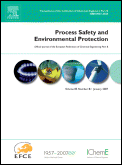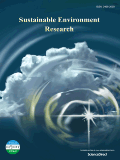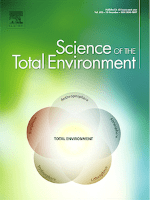
Advances in Environmental Research-An International Journal
Scope & Guideline
Driving Change through Scholarly Discourse
Introduction
Aims and Scopes
- Water Resource Management:
Research related to the quantification and management of water resources, including studies on water footprints and pollution assessments. - Pollution Assessment and Mitigation:
Investigations into various forms of pollution, including antibiotic contamination, heavy metals, and air quality, aiming to assess risks and propose mitigation strategies. - Waste Management Strategies:
Exploration of municipal solid waste management practices, including current challenges and sustainable solutions. - Sustainable Development Practices:
Research on sustainable practices in environmental management, including the use of bioremediation and renewable energy technologies. - Chemical and Biological Treatment Methods:
Studies focused on the chemical and biological methods for treating contaminants, including adsorption techniques and microbial applications.
Trending and Emerging
- Antibiotic Pollution and Risk Assessment:
There is a growing focus on the characteristics and risk assessment associated with antibiotic pollution, highlighting an emerging concern about pharmaceuticals in the environment. - Carbon Emission Reduction and Sustainability:
Research is increasingly directed towards carbon emission reduction technologies and sustainable practices, reflecting global efforts to combat climate change. - Impact of COVID-19 on Environmental Quality:
Studies analyzing the effects of the COVID-19 pandemic on ambient air quality and other environmental parameters have gained prominence, showcasing the pandemic's impact on environmental research. - Advanced Waste Management Solutions:
Emerging research on innovative waste management practices, including the use of SWOT analysis for decision-making, indicates a trend towards more strategic approaches in handling municipal solid waste. - Biological Treatment Methods for Contaminants:
A notable trend in exploring biological methods for treating environmental contaminants, such as the use of earthworms and microbial processes, showcases a shift towards sustainable remediation techniques.
Declining or Waning
- Indoor Air Quality Studies:
Although previously a significant area of research, studies specifically targeting indoor air quality have decreased in frequency, indicating a potential shift towards outdoor and broader environmental assessments. - Agricultural Practices and Impacts:
Research related to agricultural practices, particularly those not directly linked to sustainability or pollution, seems to have waned, suggesting a narrowing focus on more pressing environmental issues. - Geochemical Studies of Water Quality:
While groundwater quality evaluations were previously highlighted, the frequency of such studies has diminished, possibly indicating a shift towards more immediate environmental concerns such as pollution and waste management.
Similar Journals

PROCESS SAFETY AND ENVIRONMENTAL PROTECTION
Elevating standards in process safety and environmental science.PROCESS SAFETY AND ENVIRONMENTAL PROTECTION, published by Elsevier, is a premier academic journal dedicated to advancing the fields of chemical engineering, environmental science, and safety management. With an impressive impact factor, this esteemed journal undergoes a meticulous peer-review process and serves as a vital platform for researchers, professionals, and students seeking to disseminate cutting-edge research and innovative practices. Submissions are welcome in a wide scope of topics related to safety, risk, reliability, and environmental engineering, demonstrating its influence as a Q1 journal across multiple categories, including Environmental Chemistry and Safety, Risk, Reliability and Quality. By providing a rigorous analysis of current challenges and solutions in the domain since its inception in 1990, it continues to foster interdisciplinary collaboration and practical applications in the United Kingdom and beyond. With the journal not currently offering Open Access options, subscribers gain exclusive access to pivotal insights that shape industry standards and drive advancements in sustainable practices.

Sustainable Environment Research
Driving impactful discussions on environmental sustainability.Sustainable Environment Research, an esteemed journal published by BMC, serves as a pivotal platform for disseminating innovative research in the fields of Environmental Engineering, Pollution, and Renewable Energy. Established in 2016 as an Open Access journal, it facilitates the widespread sharing of knowledge and advancements across the globe, reflecting its commitment to enhancing environmental sustainability. With an impressive Q1 ranking in multiple categories, including Water Science and Technology and Pollution, the journal is recognized for its significant impact, currently holding a rank of 31st in Environmental Science - Water Science and Technology. The journal actively invites researchers, professionals, and students to contribute to crucial discussions around sustainable practices and technologies, thus addressing worldwide environmental challenges. Based in Taiwan but accessible internationally, Sustainable Environment Research provides a valuable resource for those dedicated to advancing the science of sustainability.

GLOBAL JOURNAL OF ENVIRONMENTAL SCIENCE AND MANAGEMENT-GJESM
Bridging disciplines to enhance environmental stewardship.Global Journal of Environmental Science and Management (GJESM), published under the distinguished leadership of Professor J. Nouri, is an esteemed academic platform dedicated to advancing the interdisciplinary discourse surrounding environmental science and management. With an ISSN of 2383-3572 and an E-ISSN of 2383-3866, GJESM has established itself as a prominent Open Access journal since 2014, allowing for unrestricted sharing of knowledge and research findings. Based in Iran, this journal caters to a diverse global audience, featuring contributions that span various critical domains including agricultural and biological sciences, environmental engineering, pollution management, and social sciences, evidenced by its impressive 2023 Q1 and Q2 quartile rankings across multiple categories. The journal’s Scopus rankings demonstrate a robust standing in the academic landscape, with exciting placements that underscore its relevance in key fields. By bridging the gap between scientific inquiry and practical application, GJESM serves as a vital resource for researchers, practitioners, and students seeking to understand and address the pressing environmental challenges faced by our planet today.

Science of The Total Environment
Transforming Environmental Challenges into OpportunitiesScience of The Total Environment, an esteemed journal published by Elsevier, holds a significant position in the field of environmental science, encompassing critical areas such as Environmental Chemistry, Environmental Engineering, Pollution, and Waste Management and Disposal. With an impressive impact factor and ranked in the Q1 quartile across its categories for 2023, the journal is recognized for its high-quality research output and contribution to environmental sustainability. Operating from its base in the Netherlands, the journal has been a valuable resource since its inception in 1972, welcoming innovative studies that address complex environmental challenges. Its notable rankings—such as Rank #9 in both Environmental Sciences and Pollution—underscore its relevance and influence in the academic community. Although the journal currently does not provide an open access option, the robust findings and discussions presented within its pages continue to foster a deeper understanding of environmental issues. Science of The Total Environment is an essential platform for researchers, professionals, and students dedicated to advancing knowledge and solutions in the rapidly evolving field of environmental science.

ENVIRONMENTAL MANAGEMENT
Innovating solutions for pressing environmental challenges.ENVIRONMENTAL MANAGEMENT, published by Springer, stands at the forefront of advancing sustainability and ecological stewardship in the fields of Ecology, Global and Planetary Change, and Pollution. With an impressive tracking history from 1977 to 2024 and prestigious quartile rankings reflecting its significant impact (Q1 in Ecology and Q2 in both Global and Planetary Change and Pollution), this journal engages a wide range of stakeholders, including researchers, policymakers, and environmental professionals. The journal is a vital resource for those dedicated to addressing pressing global environmental challenges, publishing rigorous interdisciplinary research that informs policy and practice. While it does not offer open access, its content remains accessible through institutional subscriptions. Located in the heart of New York, ENVIRONMENTAL MANAGEMENT is dedicated to fostering a substantive dialogue on innovative approaches to environmental preservation and management.

Asian Journal of Water Environment and Pollution
Pioneering strategies for a pollution-free future.Asian Journal of Water Environment and Pollution is a leading academic journal published by IOS PRESS, dedicated to advancing the field of water science and technology, as well as pollution management. With its ISSN 0972-9860 and E-ISSN 1875-8568, this journal serves as a pivotal platform for researchers, professionals, and academics alike who are keen to explore innovative solutions and interdisciplinary approaches toward water-related challenges and environmental issues. Although currently positioned in the Q4 category for both pollution and water science & technology, the journal aims to foster impactful research and discussions that can enhance the understanding and treatment of water pollution. The Asian Journal of Water Environment and Pollution not only plays a crucial role in disseminating knowledge but also encourages the sharing of findings from unique geographic perspectives, particularly from Asia. As the field evolves, this journal is poised to become a vital resource for those looking to contribute to sustainable water management practices and pollution reduction strategies.

Journal of Mining and Environment
Innovating solutions for a greener mining industry.Journal of Mining and Environment, published by Shahrood University of Technology, is a pivotal peer-reviewed journal dedicated to advancing the fields of geochemistry, petrology, geophysics, geotechnical engineering, and pollution studies. With its ISSN 2251-8592 and E-ISSN 2251-8606, this journal aims to disseminate significant research findings that address critical environmental challenges associated with the mining industry. Operating out of Iran, the journal has quickly established itself in the academic arena, achieving a Q3 quartile ranking across multiple categories in 2023, highlighting its contribution to the scientific community's understanding of mining-related environmental impacts. Accessible to researchers, professionals, and students, the journal emphasizes open dialogue and interdisciplinary collaboration, focusing on innovative methodologies and sustainable practices that can shape the future of mining and environmental stewardship. With a commitment to quality and relevance, the Journal of Mining and Environment is an essential resource for anyone engaged in the crucial intersection of mining processes and environmental integrity, encouraging submissions that push the boundaries of current knowledge.

International Journal of Environmental Science and Technology
Empowering researchers to shape environmental solutions.International Journal of Environmental Science and Technology, published by SPRINGER, stands as a premier platform for the dissemination of cutting-edge research in the fields of environmental science, technology, and engineering. With an impressive scope spanning from 2005 to 2024, this journal serves as a vital resource for academic and professional communities engaged in tackling pressing environmental challenges. It boasts a strong reputation, evidenced by its Q1 ranking in Agricultural and Biological Sciences and solid placements in Environmental Chemistry and Engineering. Researchers searching for high-impact studies will find the journal's contributions significant, as reflected in its rankings within Scopus: 34th percentile in Agricultural and Biological Sciences and notable standings in Environmental Engineering and Chemistry. Although the journal is not currently an Open Access resource, it maintains a commitment to academic rigor and innovation, making it indispensable for those devoted to advancing knowledge in environmental sustainability and technology.

ENVIRONMENTAL SCIENCE AND POLLUTION RESEARCH
Elevating Awareness of Environmental and Health IssuesEnvironmental Science and Pollution Research is a premier international journal published by Springer Heidelberg, dedicated to advancing knowledge in the field of environmental science and pollution. With an impressive impact factor reflecting its vital contributions to research, the journal is categorized in the top quartiles (Q1 and Q2) across several domains, including Health, Toxicology and Mutagenesis, and Environmental Chemistry. Established in 1994, it continues to be a critical resource for researchers, professionals, and students focusing on pressing environmental issues. The journal provides an insightful platform for disseminating significant findings related to pollution and its effects on health and the environment, contributing to a better understanding and resolution of these challenges. While it currently does not offer Open Access options, its inclusion in prominent rankings, such as the Scopus rankings, underscores its reputation and influence within the scientific community.

REVIEWS IN ENVIRONMENTAL SCIENCE AND BIO-TECHNOLOGY
Transforming Challenges into Sustainable SolutionsREVIEWS IN ENVIRONMENTAL SCIENCE AND BIO-TECHNOLOGY is a leading academic journal published by Springer, focusing on the interdisciplinary study and advancement of environmental science and biotechnological applications. With an impressive impact factor that places it in the top quartile of its categories, this journal has consistently ranked highly (Q1) in vital fields such as Applied Microbiology and Biotechnology, Environmental Engineering, Pollution, and Waste Management and Disposal, reflecting its significant contribution to these domains. Established in 2002 and continuing to publish cutting-edge research, the journal primarily caters to researchers, professionals, and students who seek to stay abreast of the latest findings and methodologies in environmental sustainability and biotechnological innovations. While it does not currently offer open-access options, subscribers have access to a wealth of comprehensive reviews and original articles that explore the ever-evolving challenges and solutions in environmental science. Located in the Netherlands, REVIEWS IN ENVIRONMENTAL SCIENCE AND BIO-TECHNOLOGY is instrumental in bridging the gap between scientific research and practical application, promoting a collaborative approach to addressing global environmental issues.